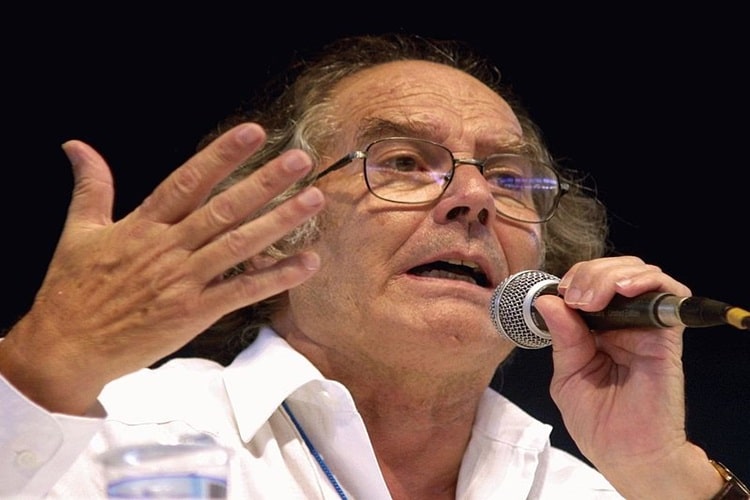Adolfo Perez Esquivel is an Argentine activist, community organizer, painter, writer, and sculptor. He was awarded the Nobel Peace Prize, which he received in 1980.
Life and Career
Adolfo Perez Esquivel was born on November 26, 1931, in Buenos Aires, Argentina. His early life was marked by a strong commitment to justice and human rights. He grew up in a context of political and social turbulence in Argentina.
Esquivel studied architecture at the University of Buenos Aires. He also pursued theological studies at the Latin American Episcopal Institute (ILADES). His education and background played a crucial role in shaping his perspective on social justice and human rights.
Esquivel became actively involved in human rights issues during the 1960s and 1970s, a period marked by political repression and authoritarian rule in Argentina. He worked with various organizations and movements advocating for justice and the protection of human rights.
In 1974, Pérez Esquivel founded the Servicio Paz y Justicia (SERPAJ), an organization dedicated to promoting nonviolence and advocating for human rights. SERPAJ played a crucial role in documenting human rights abuses during the military dictatorship in Argentina.
As a result of his activism, Pérez Esquivel was arrested and imprisoned without trial by the military junta in 1977. He spent 14 months in various detention centers, enduring torture and abuse. His release came after an international campaign for his freedom.
In 1980, Adolfo Pérez Esquivel was awarded the Nobel Peace Prize for his efforts to promote human rights and nonviolence in Latin America. The Nobel Committee recognized his dedication to the defense of human dignity and his courageous struggle for justice.
After receiving the Nobel Peace Prize, Pérez Esquivel continued his activism on various fronts, both in Argentina and internationally. He remained committed to issues such as disarmament, social justice, and the rights of indigenous peoples.
Award and Legacy
Adolfo Pérez Esquivel’s significant contributions to human rights and peace have earned him several awards and honors. The most notable among them is the Nobel Peace Prize, which he received in 1980. This prestigious award recognized his unwavering commitment to nonviolence, justice, and human dignity, particularly in the context of the human rights abuses during the military dictatorship in Argentina.
Apart from the Nobel Peace Prize, Pérez Esquivel has been honored with numerous other awards and recognitions from various organizations and institutions globally. These awards acknowledge his tireless efforts in promoting human rights, social justice, and peace.
Pérez Esquivel is widely regarded as a symbol of resilience and courage in the face of oppression. His steadfast dedication to the defense of human rights, even at great personal risk, has inspired generations of activists around the world.
The organization Pérez Esquivel founded, Servicio Paz y Justicia (SERPAJ), continues to be a prominent force in the promotion of human rights and nonviolence. The work of SERPAJ has had a lasting impact on the human rights landscape in Latin America.
As a Nobel laureate, Pérez Esquivel has been a powerful voice on the international stage, advocating for disarmament, justice, and the rights of marginalized communities. His influence extends beyond Argentina, shaping global conversations on human rights and peace.
In addition to his activism, Pérez Esquivel is also an accomplished artist. His artistic expressions, including paintings and sculptures, often carry themes related to justice, peace, and human rights. This dual role as an artist-activist adds a unique dimension to his legacy.
Adolfo Pérez Esquivel’s life and work serve as an inspiration for individuals and movements committed to social justice and human rights. His legacy encourages people to stand up against injustice, even in the most challenging circumstances.

